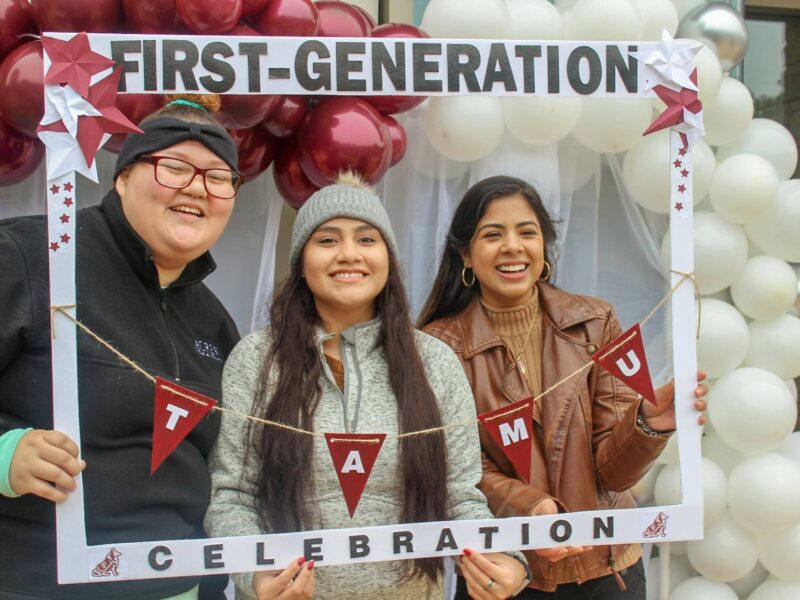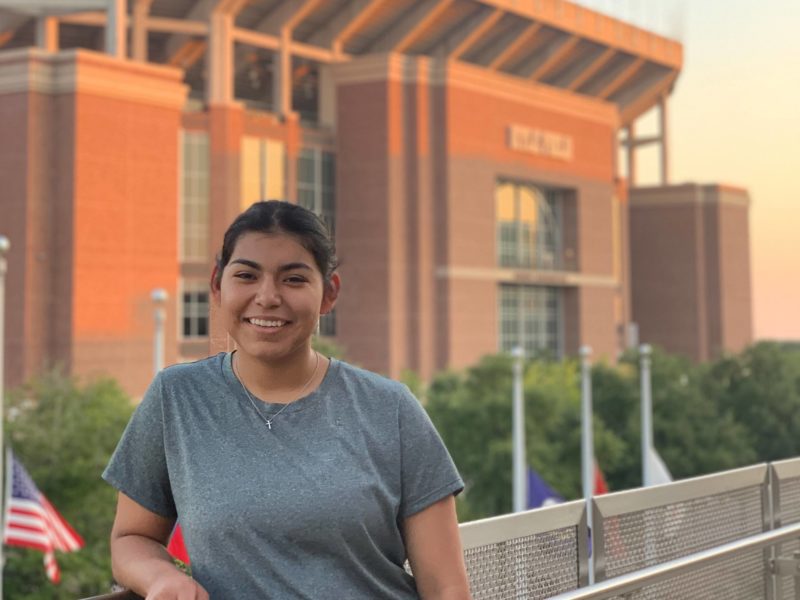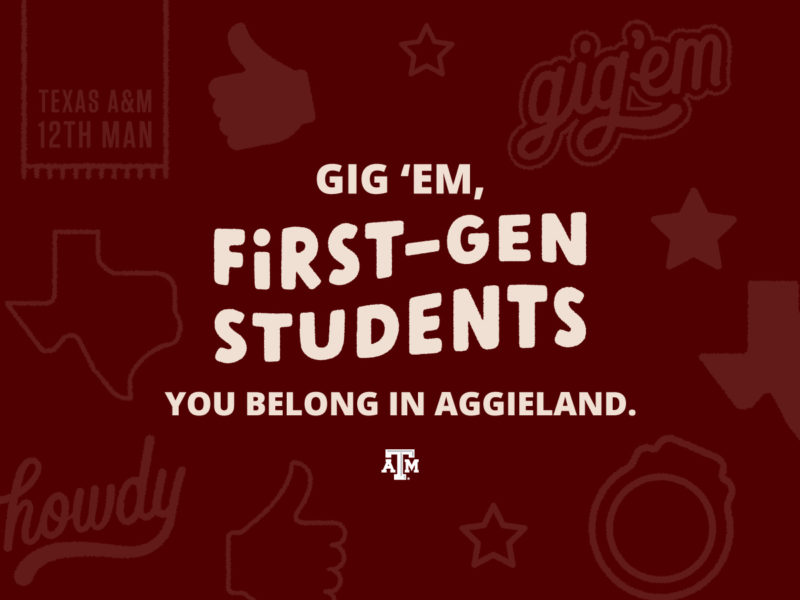First In Her Family

Jacqueline Tierrablanca ’22 grew up intending to be the first in her immediate and extended family to go to college. Now as a senior international studies major at Texas A&M University, she hopes to inspire other first-gen students to overcome whatever challenges they are facing and earn their degrees.
As a child, Tierrablanca watched her parents struggle to find stable jobs after immigrating from Mexico. Eventually, her parents started a construction business where she worked growing up. Through these experiences, she decided that she didn’t want to follow a construction-related career path; she wanted to get a college education.
“I saw how tired my dad was from when he came home from work, so I knew that I did not want to do manual labor,” Tierrablanca said. “I want to live my life and retire at a young age. That’s kind of like my mindset on going to college. It’s kind of always been in my head.”
Tierrablanca heard a lot about Texas A&M from her friends and high school teachers. With generations of Aggies in their families, they had extensive knowledge of campus life and culture. After she toured campus, she knew she wanted to be a part of the Aggie community.
“A&M’s campus is so beautiful,” Tierrablanca said. “I feel like if you talked to me in high school, I would not talk to anyone that differed from me. Coming to Texas A&M has really opened my eyes [in] understanding that there are different viewpoints and different ideas that go around.”
For her first semester, she took 17 hours as a political science major while also being in the Corps of Cadets. Along with trying to balance her classes, she encountered obstacles including disliking her major, her grandfather passing away, her dog getting sick, and struggles with her mental health.
“I didn’t like my major at all my first semester; I switched to International Studies,” Tierrablanca said. “After my first semester, I was on academic probation. That was really depressing because you can lose your financial aid.”
She turned to the Academic Success Center (ASC) for direction in figuring out how she could improve her grades and mindset. Under the guidance of Academic Coach Julie Hurley and by using the online ASC resources, Tierrablanca learned how to manage her time effectively.
“The Academic Success Center really helped because they make it simple to understand grade point average (GPA) and how to raise your GPA,” Tierrablanca said. “Even on their website, they have a bunch of resources you can use, like timekeeping skills. They understand first-generation struggles too, and they’re really kind.”
After overcoming her academic problems, she also decided that the Corp of Cadets wasn’t for her. She was content in her new major, but she was still facing difficulties as a first-generation student. According to Pew Research Center, first-generation students are less likely to complete a bachelor’s degree, have a lower household income, and are more likely to incur education debt.
“First-generation students drop out at a higher rate than any other students, and after my probation, I [thought] ‘I kind of want to drop out,’” Tierrablanca said. “Being first-generation, there’s a lot more stress on you.”
She said she noticed differences between her and her non-first-generation friends through their conversations. Her friends who were second- or third-generation Aggies had more financial support from their parents, and they also had someone to guide them through the financial aid process.
“I feel like a lot of people can refer to their parents and ask them about their college experience; I didn’t really have that,” Tierrablanca said. “I had to figure out FAFSA on my own. Being firs-generation forces you to grow up so much quicker.”
Despite these differences, Tierrablanca developed close friendships, found organizations she liked, and learned that it’s okay to ask for help. She is currently participating in an internship in Spain and is set to graduate with her B.A. in International Relations a year early in 2022. After graduation, she hopes to attend law school and pursue a career in international law.
“I feel like for a lot of first-generation students there’s a stigma to not talk about your struggles,” Tierrablanca said. “Try to get a support system, even if it’s a small group, even if it’s someone at CAPS (Counseling and Psychological Services).”
For more information about first-generation student resources, visit the Routh First-Generation Center, the ASC, and the CAPS websites.
Media contact: Lesley Henton, 979-845-5591, lshenton@tamu.edu





